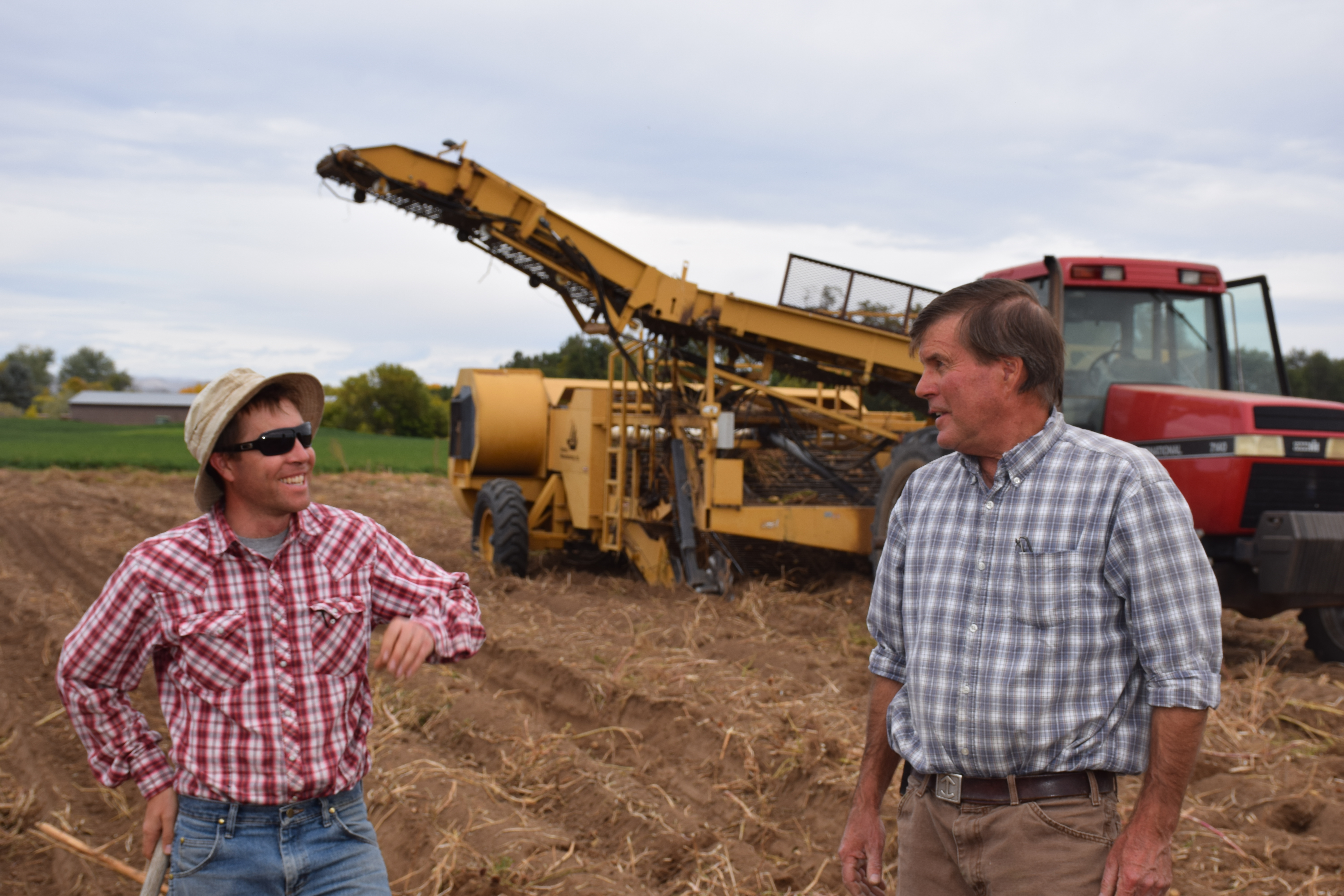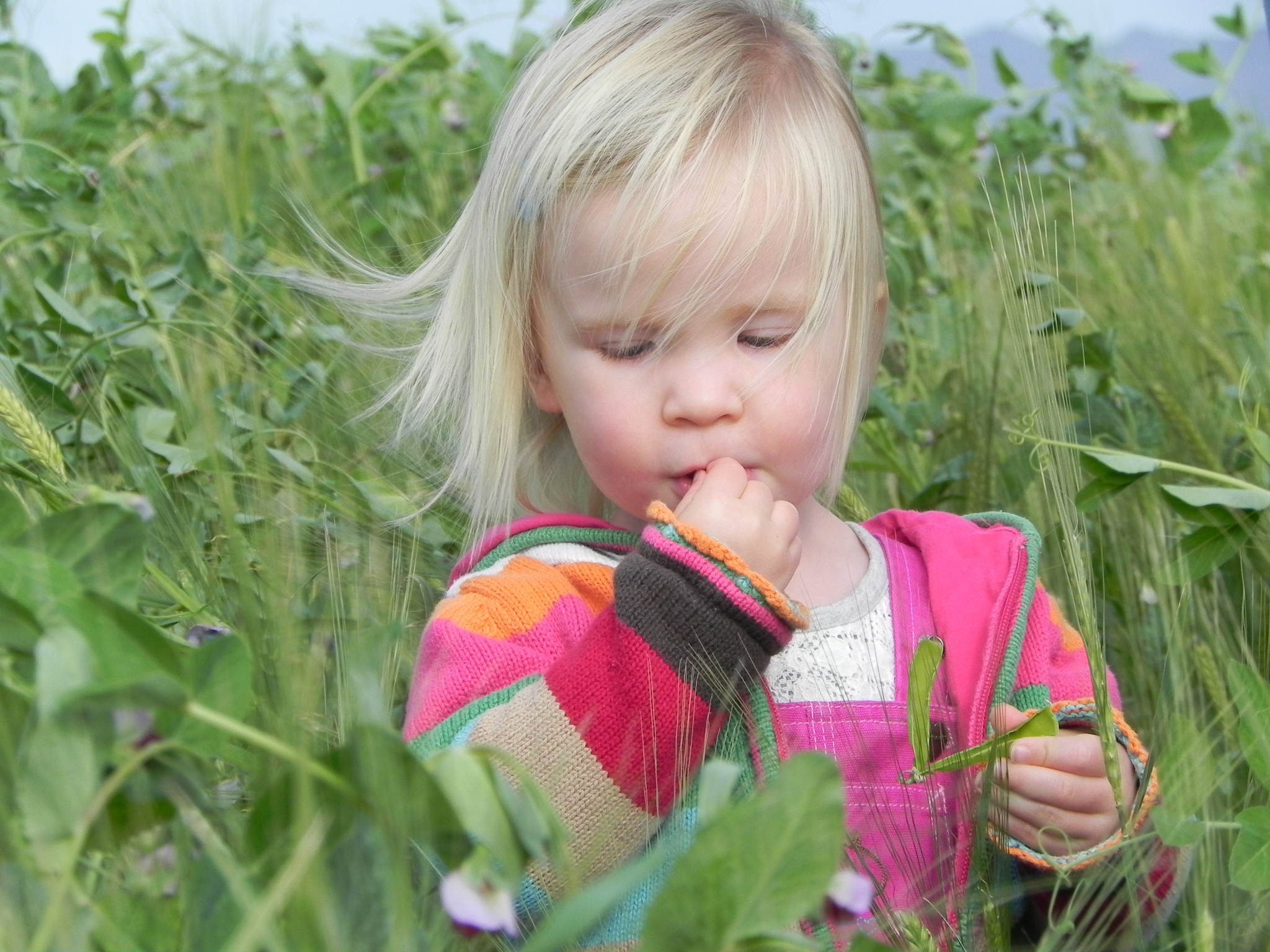This article appears in Potato Grower’s Idaho Annual 2018 issue.
Autumn is beginning to tinge the boxelder trees along the banks of the Little Wood River with vibrant yellows, oranges and reds. In a matter of days, these trees will cut a blazing ribbon across the sagebrush prairie. From his front porch, a hundred yards from the river, Fred Brossy takes a deep breath of the clean fall air and smiles.
“This is our little piece of heaven,” he says.
And it feels that way, even for a visitor. The farm at Ernie’s Organics, as the operation the Brossys own and manage is called, feels nostalgic but not dated, exuding an authentic, everybody’s-welcome-here warmth without any of the syrupy, artificial sentimentality of some B-grade Hallmark movie. This place is as real as it gets, and so are the Brossys and everyone else who’s been involved in the farm’s success over the years.
Fred and Judy Brossy and their then-two-year-old son Cooper moved to Shoshone in 1983 to manage the farm for Ernie Bryant, from whom the operation takes its name. The farm sits on 300 irrigated acres straddling the Little Wood a few miles west of Shoshone, Idaho. The soil is fertile, sandy loam, nestled between sagebrush-covered basalt outcrops and the river, with an abundance of natural wildlife habitat bordering relatively small cultivated fields. Initially focusing on grazing cattle, over the ensuing years, the Brossys incorporated more and more organic production onto the farm. The entire operation was certified organic in 1996, growing potatoes, alfalfa, dry beans, wheat, corn, garden bean seed and cover crops. Their most significant crop in terms of acreage is alfalfa, which supplies feed for organic dairies in the area and plays the vital role of helping control perennial weeds in the crop rotation. Depending on the year, between 20 and 35 acres are in potatoes, which Brossy says can make up as much as 25 percent of the farm’s income, despite the small number of acres devoted to them.
 “It just fit my philosophy of farming,” says Brossy of the switch to organic. “And the conventional commodity business just doesn’t fit a farm like this as well as organic production does.
“It just fit my philosophy of farming,” says Brossy of the switch to organic. “And the conventional commodity business just doesn’t fit a farm like this as well as organic production does.
“The switch to organic crops would not have been nearly as smooth without the help of some really good friends and mentors who helped me get started,” he continues, specifically citing Mike Heath and Nate Jones, both of whom have operated successful organic farms in southern Idaho for decades. “It really helps when you have somebody to encourage and support you through a transition like that. Twenty-odd years in, we continue to help each other regularly.”
Brossy is adamant that the story of Ernie’s Organics is much more than the story of Fred and Judy Brossy. Dozens of people have contributed significantly to the farm’s success—from tutors like Heath and Jones, to loyal, long-serving full-time employees, to seasonal help, to neighbors who come in during harvest just for the chance to drive a big old truck. Credit also goes to the farm’s longstanding relationships with customers such as Amy’s Kitchen, which has purchased the Brossys’ potatoes since 1998.
“This all happens by the grace of God and with the help of a lot of really nice people who have been helping us for years,” he says.
The Brossys raised their only son, Cooper, on the farm. By putting the property in a conservation easement through the NRCS Federal Farm Protection Program and the local land trust, they were able to purchase the farm from Bryant in 2005. Cooper grew up, left home to get a degree, and worked as a consulting geologist for several years. But as time went on, the itch to go back to the farm became more persistent. A few years ago, with Judy ailing from Alzheimer’s and that itch to farm not going anywhere, Cooper moved his young family back to the Magic Valley and became a partner with Fred on the farm.
“Probably the biggest reason I farm is the chance to work alongside family and friends,” says Cooper. “Farming is a lot of fun when you get to watch things grow, both in the sense of watching your successes and watching your failures.”
“Well, the failures aren’t all that fun,” Fred cuts in with a laugh.
“No,” agrees Cooper, “but they’re very illustrative. The series of challenges you have to weave your way through—I like that. I like juggling and working my way through the challenges.”
Fred attributes the farm’s ongoing success to Judy’s efforts over the years—and now that he is back on the farm, Cooper’s as well.

“None of this could have been achieved without Judy by my side,” he says. “Even though she can no longer participate, working with Cooper every day is like a dream come true for me.”
The Brossy family has dedicated a lot of time and energy over the years to promoting organic production not only to consumers, but to their fellow producers. Fred truly believes every grower stands to benefit from the incorporation of at least some organic-leaning practices.
“It takes people who are open-minded and see it as a way to get a start for themselves in farming,” he says. “They can be successful at this if they aren’t hung up on the way they were taught to farm as being the only way.
“I don’t consider myself a potato grower so much as I consider myself an organic farmer who happens to grow potatoes,” he continues. “Organic farming is a biological system, much more than just input substitution. We can’t buy more farmland around us; we’re kind of hemmed in by lava fields here. So we’ve got to make the land we farm better. It feels pretty good to know that thanks to the conservation easement, this place will remain a farm forever.”
For a little piece of heaven, that’s a pretty good deal.